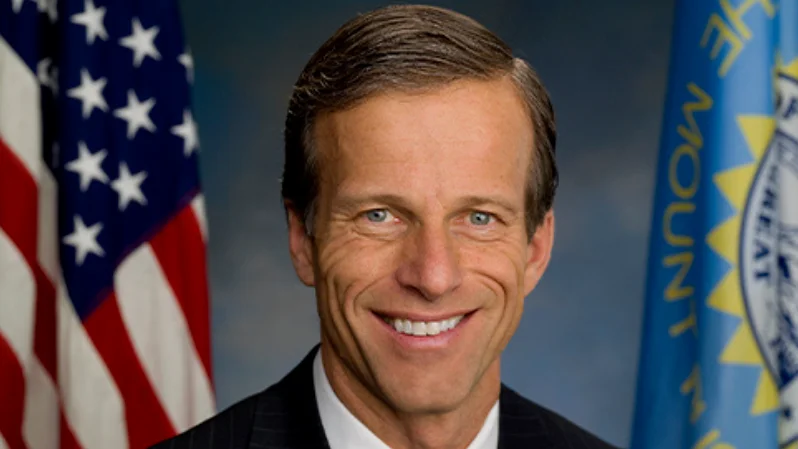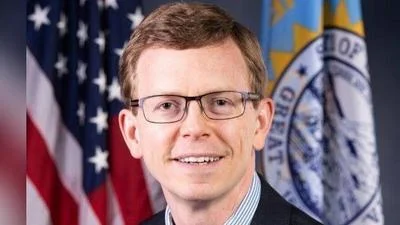Senator John Thune, US Senator for South Dakota | Official U.S. Senate headshot
Senator John Thune, US Senator for South Dakota | Official U.S. Senate headshot
U.S. Senate Majority Leader John Thune (R-S.D.) addressed the Senate floor on Thursday, expressing concerns about delays in the appropriations process and the confirmation of executive branch nominees.
Thune noted that the Senate Appropriations Committee has advanced six bipartisan bills and stated that Republicans are prepared to move forward with a package that allows for amendments from both parties. He emphasized the importance of improving legislation through serious amendments rather than using them for political advantage.
He said, “Mr. President, appropriations season is well underway. The Senate Appropriations Committee has so far passed six bipartisan appropriations bills, and Republicans are ready to consider a package of appropriations bills and have a floor process. One that involves serious amendments from both sides of the aisle – amendments designed to improve the bills, not score political points or sink the bills with poison-pill measures.”
Thune expressed hope that Democrats would work together to complete an appropriations package soon and collaborate with the House in August to prepare legislation for the president’s signature. He also highlighted that more work remains for September and advocated for a regular-order process involving debate and amendment on the Senate floor.
“It is in the interest, Mr. President, of both parties to have a regular-order, bipartisan process,” Thune said. “And at least some Democrats have acknowledged as much. And it would be nice to see that attitude prevail in the Democrat Party generally.”
Thune criticized recent threats of a government shutdown by Democratic leadership and urged against adopting such positions.
He also addressed delays in confirming civilian nominations, stating that while Republicans have made progress on confirmations, Democrats have slowed down approvals compared to past administrations.
“By this point in his presidency, Joe Biden had had 121 civilian nominees confirmed, and 49 of them had been confirmed by voice vote or unanimous consent,” Thune said. “Mr. President, you want to know how many civilian nominees President Trump has had confirmed by unanimous consent or voice vote? None. Zero.”
Thune referenced historical data showing higher rates of nominee confirmations by unanimous consent or voice vote under previous presidents from both parties: George H.W. Bush (98 percent), Bill Clinton (98 percent), George W. Bush (90 percent), Barack Obama (90 percent), Donald Trump’s first term (65 percent), and Joe Biden (57 percent). He contrasted these figures with what he described as zero confirmations by these methods during Trump’s current term.
“This isn’t sustainable,” Thune stated. “We can’t keep on this track... This has got to change.”
He pointed out that there are currently 1,100 executive branch nominations requiring Senate confirmation—a number he considers excessive—and warned that many positions may remain unfilled at this pace.
“There are important jobs in the government that are currently standing empty – eight months, now, into this president’s term – because Democrats have dragged out the confirmation process and denied President Trump the courtesy that Republicans and Democrats alike in the past have extended to previous presidents,” Thune said.
He concluded by urging pragmatic Democrats to help advance a nominations package quickly: “We have a lot of bipartisan nominees who are available for consideration right now. And we should be able to quickly approve their nominations.”


 Alerts Sign-up
Alerts Sign-up